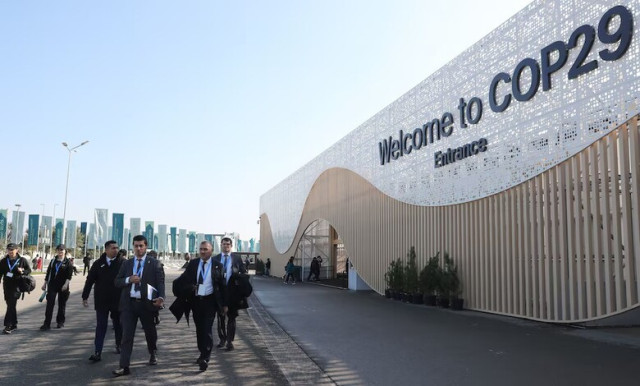BAKU, Azerbaijan, Nov. 11—Delegates from nearly 200 countries have gathered in Baku for the 29th United Nations Climate Change Conference (COP29), a pivotal summit set against global climate crises and political uncertainty. The summit, running through Nov. 22, is focused on resolving a contentious issue: climate finance. Developing nations, disproportionately affected by climate change despite contributing little to global emissions, demand financial support from wealthier nations to adapt to climate impacts and transition to cleaner energy.
Former U.S. President Donald Trump's reelection casts a long shadow over the talks. Known for his scepticism of climate science and withdrawal from the Paris Agreement, Trump's return to power signals a potential shift in U.S. climate policy. “The shadow of President Trump’s election will be palpable,” said Alice Hill, a former resilience policy director under President Obama.
Adding to the complexity, Baku, a fossil fuel-rich nation, has drawn criticism for hosting the summit while planning to expand natural gas production. Allegations that the host country used the summit for its own economic gains have further marred the conference’s credibility.
High-profile absences and rising tensions
Major emitters such as the U.S., China, and India have opted not to send their heads of state and key European leaders, leaving a leadership vacuum. Meanwhile, Papua New Guinea is boycotting the summit to protest wealthy nations' failure to deliver on past climate pledges. The lack of top-level attendance reflects growing frustrations among vulnerable nations, some demanding climate finance commitments of up to $1 trillion annually—a steep increase from the $100 billion target that wealthier nations only recently met.
Escalating climate impacts demands urgent action.
The urgency is underscored by recent climate disasters, including deadly flooding in Nigeria and heatwaves in Saudi Arabia that claimed hundreds of lives. Scientists warn that the planet is already 1.3°C warmer than preindustrial levels, with current policies leading to a potential 3.1°C rise by century’s end, far exceeding the Paris Agreement’s 1.5°C target. “We’re teetering on a planetary tightrope,” said U.N. Secretary-General António Guterres, urging nations to bridge the emissions gap.
Though COP agreements remain non-binding, they serve as critical signals of global intent. As negotiations progress, the summit may provide a glimpse into the future of international climate diplomacy, especially with Trump's U.S. poised to step back from leadership roles.




















